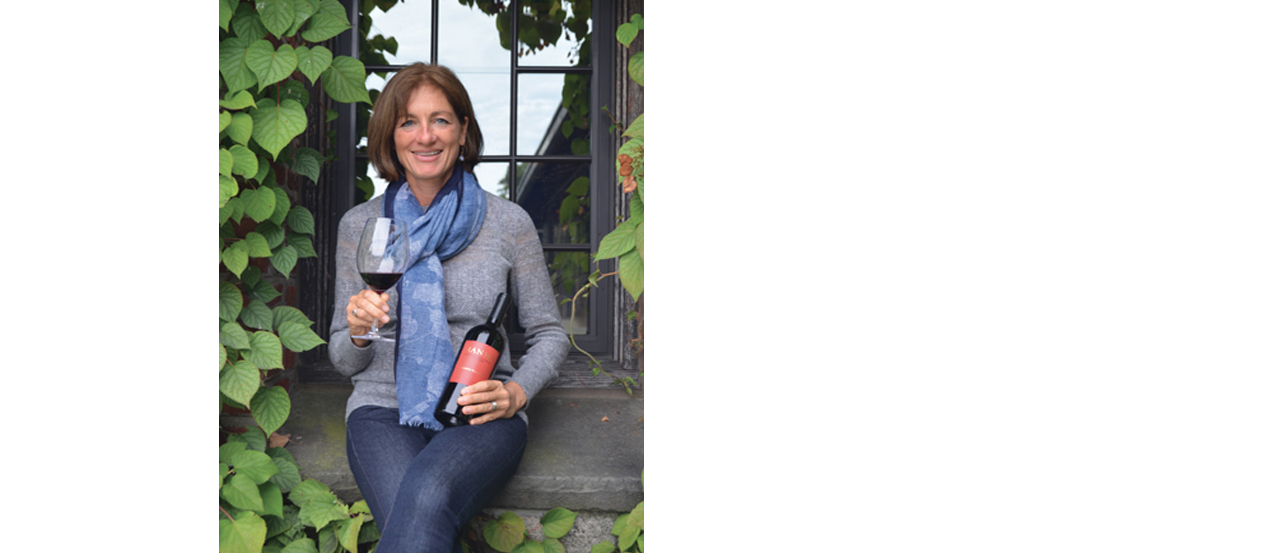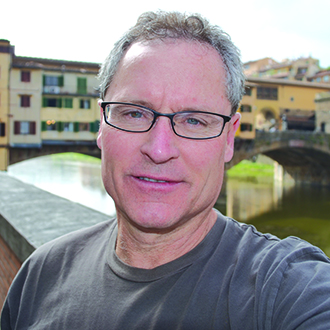Like most wine entrepreneurs around the globe, Christine Hanna, president of Hanna Winery, is paying a lot of attention to her environment and its place in the world. Grape growers in particular and farmers in general are getting back in touch with the earth and embracing a broad spectrum of nondestructive flora and fauna for ecological balance. Many studies and lots of anecdotal evidence are telling them a living, breathing and holistic farm is healthier, creates more and better produce and will be sustainable for the foreseeable future, perhaps indefinitely. Christine’s father, Dr. Elias Hanna, was born in Syria. Early on it was clear he was bright and his family thought living in the United States would give him many more options. After college he became a doctor, working in a M.A.S.H unit in Vietnam. After the war, he married and meditated on the proper place to raise a family. He wanted his family to “Know the land and to know the earth.” He wanted his family to be grounded through working and touching the land. Elias Hanna bought some land in what would eventually become the Russian River Valley American Viticultural Area (AVA) in California. He and his family began making wine, albeit an uninteresting vintage, in the 1970s. In 1985 they decided to take their wine to a new plateau and hired skilled winemaker Merry Edwards as a consultant. They continued to buy up acreage and improve their grape growing and winemaking techniques. Today, Hanna Winery owns some 600 acres with more than 250 acres planted with grapes in Sonoma County. Elias’ eldest daughter, Christine, came to Westchester County recently to meet, to educate and to seduce the New York media. She invited us to an exceptional luncheon at Blue Hill at Stone Barns in Pocantico Hills to show us its sustainable and organic food production. It is unusual to ferry New York City media to Westchester for events for logistical reasons. I asked Christine why she took on this additional challenge to creating this event.
“In Sonoma we are certified sustainable. We wanted to show what we do at the winery, with livestock and vegetable gardens all growing together, sequentially and collaboratively grazing and reinforcing each other, the by-products from each used to fertilize and enhance the other. Blue Hills in Westchester illustrates and embodies our approach in Sonoma.”
This wonderful working and experimental farm conducts tours daily and it is well worth the trip, especially for those who aren’t familiar with how our food is sourced.
Christine took over management of the winery operation in 1993 and she has been on a mission to make Hanna Winery a national name. That year, Hanna Winery was making 1,000 cases a year. Today they are producing more than 50,000. After our educational and beautiful farm tour of flowers, fruits and vegetables, chickens, turkeys, pigs and sheep, Christine showed us her wines. She first poured her 2014 Hanna Russian River Valley Sauvignon Blanc and told us, “The Russian River Valley is perfect for Sauvignon Blanc. Its cool climate environment lends itself to a crisp, grapefruit-y, New Zealand-style Sauvignon Blanc. This wine accounts for half of our total production.”
It is stainless steel-tank fermented with no oak. Retailing at $19, it is a very delicious and attractive aperitif.
She poured her 2013 Russian River Valley Chardonnay next. Both of these white wines are harvested at night and delivered to the winery cool and ready for pressing. It is oak-barrel fermented and showed a pleasant fruitiness with an oaky presence. “I’m looking for the perfect balance of acid, fruit and oak influence,” she said.
Next we tasted the 2013 Hanna Alexander Valley Cabernet Sauvignon. This wine is 75 percent Cabernet Sauvignon, 20 percent Malbec and 5 percent Merlot. “This is the earliest we’ve ever been done with our harvest,” Christine adds. This wine showed ripe dark fruit, dried currants and a plummy finish. It sells at a competitive $42.
Then Christine poured her 2013 Hanna Bismark Vineyard Cabernet Sauvignon. Tasting of dark fruit, it is well-balanced, oaky and brooding with a great mouthfeel.
Finally we tasted the 2014 Hanna Bismark Vineyard, Sonoma Valley Zinfandel. It was raisin-y with ripe dark fruit. Production is limited so it may be difficult to find. But well worth the effort.
Write me at doug@dougpaulding.com.


